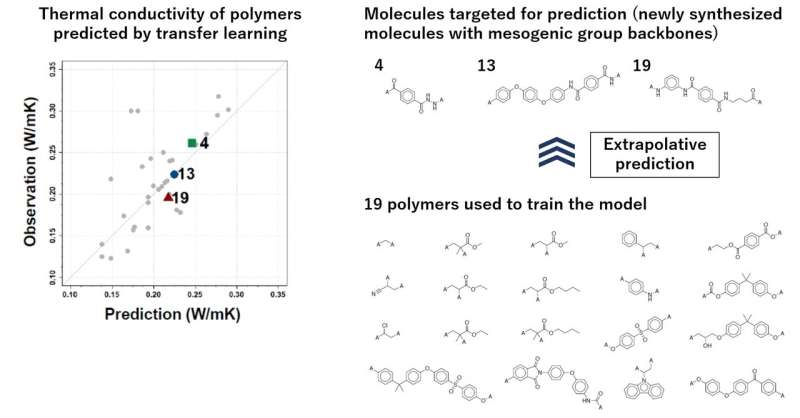XenonPy.MDL: A comprehensive library of pre-trained models for materials properties

A joint research group consisting of the Institute of Statistical Mathematics (ISM) and the National Institute for Materials Science (NIMS) has developed approximately 140,000 machine learning models capable of predicting 45 different types of physical properties in small molecules, polymers and inorganic materials. The joint group then made XenonPy.MDL—a pre-trained model library—publicly available.
XenonPy—an open source platform for materials informatics (MI) research—was jointly developed by NIMS and a team at the ISM Data Science Center for Creative Design and Manufacturing. XenonPy uses machine learning algorithms to perform various tasks of MI. Users of XenonPy can run the pre-trained models available in the XenonPy.MDL library via the application programming interface (API) and use them to construct a variety of materials design workflows. The joint group recently reported the release of XenonPy.MDL in a research article published in ACS Central Science, a journal of the American Chemical Society.
In addition, as described in the article, the group succeeded in demonstrating the great potential of transfer learning to overcoming the problem of limited amounts of materials data in various MI tasks, for example, predicting the physical properties of small molecules, polymers and inorganic crystalline materials using exceedingly limited materials data.
More information: Hironao Yamada et al, Predicting Materials Properties with Little Data Using Shotgun Transfer Learning, ACS Central Science (2019). DOI: 10.1021/acscentsci.9b00804
Journal information: ACS Central Science
Provided by Research Organization of Information and Systems





















